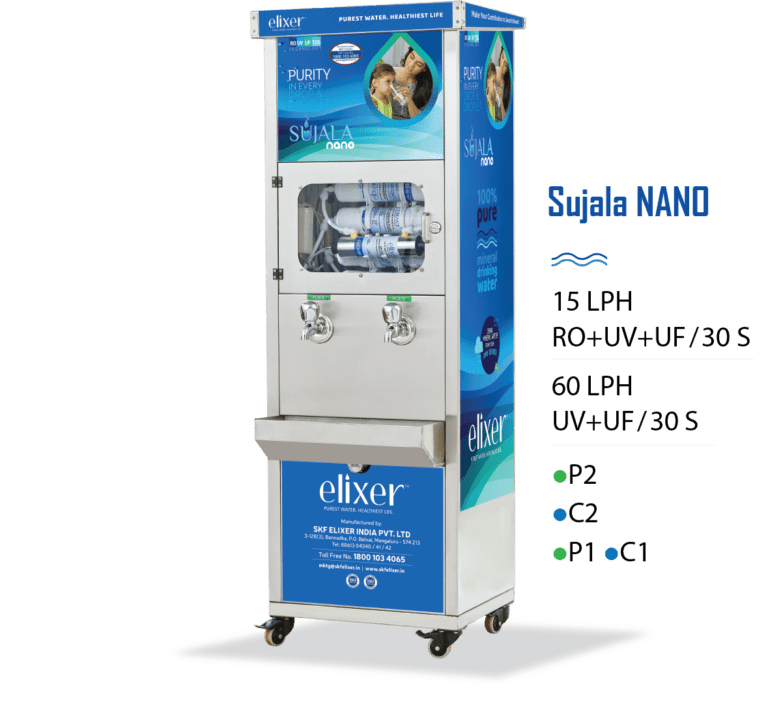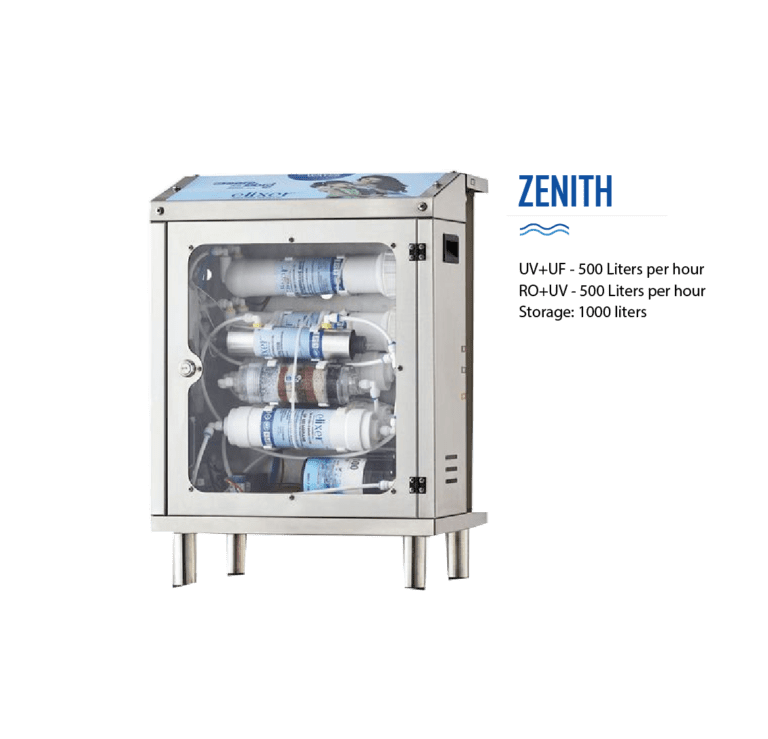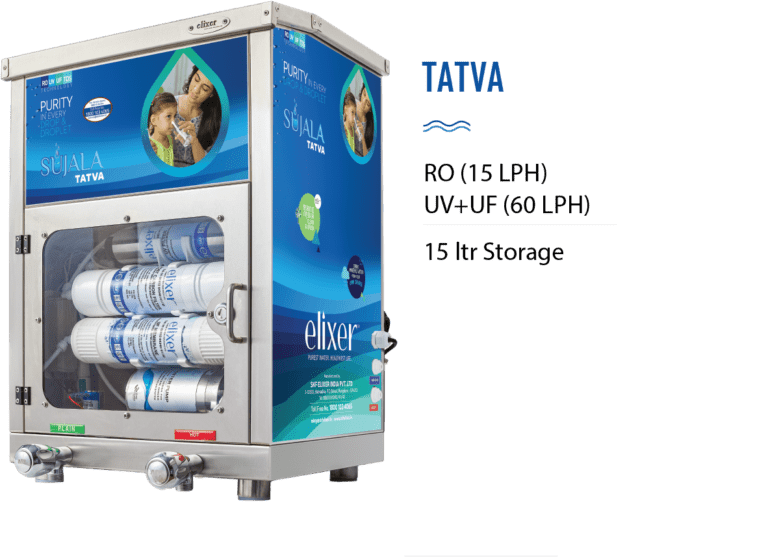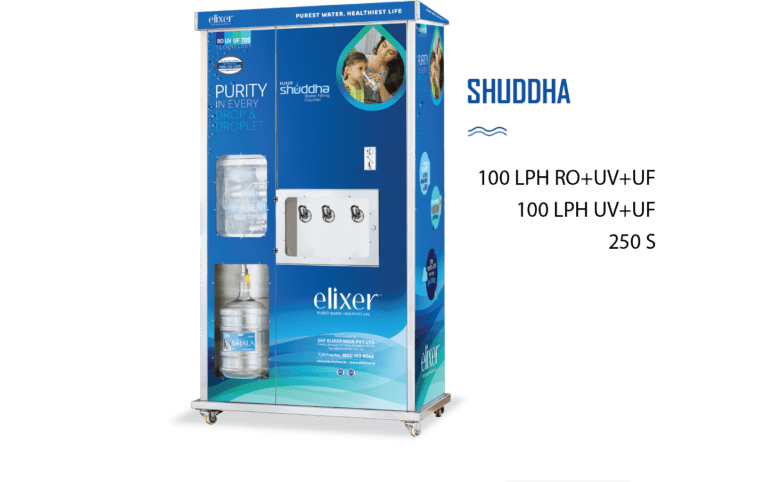Table of Contents
In the bustling corridors of India’s hospitals, from the metropolitan medical hubs of Mangaluru and Manipal to the community clinics of rural Rajasthan, the quality of water is a silent yet critical factor in patient care and operational excellence.
With over 70,000 hospitals managing millions of patients annually, ensuring access to pure water is vital for infection control, medical procedures, and equipment longevity. Contaminated water, often with high TDS (500-2,000 ppm) or pathogens, risks patient health and costly equipment damage, costing ₹50,000-₹5 lakh yearly.
An RO water purifier for hospitals delivers BIS-compliant water, safeguarding lives and operations. For hospital administrators, healthcare providers, and facility managers, this blog explores the importance of RO water purifiers in hospitals, details how RO systems support infection control in healthcare, and provides a roadmap to implement water treatment in healthcare with SKF Elixer’s advanced solutions.
The Vital Role of Clean Water in Indian Hospitals
India’s healthcare sector faces unique water challenges as almost 40% of municipal supplies are contaminated, contributing to 30 million waterborne illnesses yearly. Hospitals use 500-10,000 litres daily for drinking, dialysis, sterilization, and cleaning, yet reliance on untreated water or bottled supplies (₹20-50 per litre) increases costs and risks.
A hospital water purification system, particularly RO system for medical use, removes 95-99% of contaminants, achieving TDS levels of 50-150 ppm and zero pathogens, aligning with FSSAI and WHO standards. By adopting medical-grade water filter systems, hospitals save ₹50,000-₹5 lakh annually on health and maintenance costs while enhancing patient trust.
Let’s uncover why hospitals must invest in reliable water filtration and its transformative benefits.
How RO Water Purifiers Work in Hospitals
An RO water purifier for hospitals employs multi-stage filtration to ensure medical-grade water:
- Pre-Filtration: Sediment and carbon filters (replaced every 3-6 months) remove dirt, sand, and odors, protecting the RO membrane.
- Reverse Osmosis (RO): Forces water through a membrane, removing 95-99% of TDS, heavy metals (lead, arsenic), and pathogens.
- UV Disinfection: Eliminates 99.9% of residual bacteria and viruses, ensuring sterile water.
- Mineral Dosing: Adds trace minerals for safe dialysis and drinking, meeting BIS standards (TDS 50-150 ppm).
- Monitoring: IoT sensors track water quality in real-time, ensuring compliance.
Importance of RO Water Purifiers in Hospitals
The importance of RO water purifiers in hospitals lies in their ability to address critical needs:
Infection Control
How RO systems support infection control in healthcare: RO removes 99.9% of pathogens, preventing hospital-acquired infections (HAIs), which affect 10-15% of patients yearly in India.
Safe Water for Medical Procedures
Safe water standards for hospitals and clinics: RO ensures sterile water for dialysis, surgeries, and wound cleaning, meeting WHO standards (zero pathogens, TDS <100 ppm).
Equipment Protection
Benefits of pure water for medical equipment and patients: Hard water (TDS >500 ppm) damages dialysis machines and autoclaves, costing ₹50,000-₹2 lakh yearly in repairs. RO water extends equipment life by 30-50%.
Patient and Staff Health
RO water provides safe drinking water, reducing waterborne illnesses by 90%, saving ₹5,000-₹20,000 per staff member yearly in medical costs.
Cost Savings on Bottled Water
Eliminates bottled water (₹20-50/litre), with RO producing water at ₹2-5/litre, saving ₹50,000-₹5 lakh yearly for a 500-litre/day hospital.
These benefits underscore why hospitals must invest in reliable water filtration.
Challenges and Solutions
Implementing hospital water purification faces hurdles:
High Initial Costs: ₹1-5 lakh for RO purifier systems strains budgets.
Solution: Start with compact 50-100 litre/hour units and scale up.
Maintenance Needs: Membranes and filters require replacement every 1-2 years.
Solution: Train staff and use automated sensors.
Space Constraints: Small clinics lack room for large systems.
Solution: Opt for wall-mounted or portable RO units (1-2 sq. meters).
Compliance: BIS/FSSAI standards require frequent testing.
Solution: Partner with certified vendors for compliance support.
Steps to Implement an RO Water Purifier in Hospitals
Ready for water treatment in healthcare? Follow these steps:
Assess Water Needs: Estimate usage (500-1,000 litres/day for 50-250 patients).
Test Water Source: Analyze TDS/pathogens to confirm RO need.
Choose System: Select a purifier based on output (50-1,000 litre/hour,
Budget: Plan ₹50,000-₹5 lakh setup, ₹20,000-₹1 lakh yearly maintenance.
Select Vendor: Partner with BIS-certified SKF Elixer for RO water purifier for hospitals.
Educate Staff: Train on maintenance and promote benefits of pure water for medical equipment and patients.
Conclusion
An RO water purifier for hospitals is essential for ensuring safe water standards for hospitals and clinics, delivering benefits of pure water for medical equipment and patients. By reducing infections, protecting equipment, and saving ₹50,000-₹5 lakh yearly, RO systems are a critical investment.
SKF Elixer India Pvt. Ltd., based near Mangalore, offers tailored hospital water purification solutions, ensuring BIS-compliant clean water. Contact SKF Elixer today to enhance your water treatment in healthcare and safeguard your hospital’s operations.
FAQs
Q1: What is the importance of RO water purifiers in hospitals?
Ensures clean water for infection control, medical procedures, and equipment, saving ₹50,000-₹5 lakh yearly.
Q2: How do RO systems support infection control in healthcare?
RO systems remove 99.9% pathogens, reducing HAIs by 20%, ensuring safe water standards for hospitals and clinics.
Q3: What are safe water standards for hospitals and clinics?
BIS-compliant water with TDS 50-150 ppm, zero pathogens, achieved via RO system for medical use.
Q4: Why must hospitals invest in reliable water filtration?
Prevents infections, protects equipment, saves ₹50,000-₹5 lakh yearly, and ensures patient/staff safety with hospital water purification.
Q5: What are the benefits of pure water for medical equipment and patients?
Extends equipment life by 30-50%, reduces HAIs, and saves ₹1-3 lakh yearly in maintenance and health costs.
Good reads are meant to be shared









